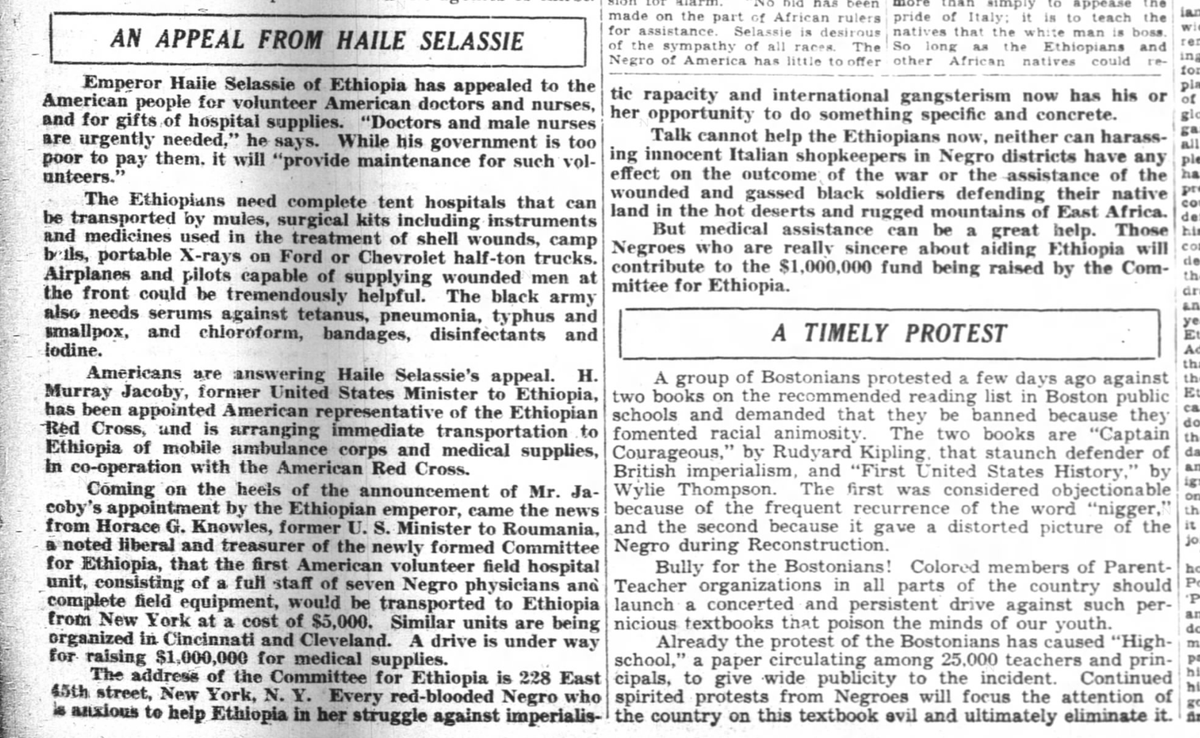The Italian invasion of Ethiopia in 1935 inspired hundreds of black Americans--and some white Americans--to volunteer to serve in Haile Selassie's army.
Here's a report from the Getty archive, showing volunteers queuing up in Harlem. 1/3
Here's a report from the Getty archive, showing volunteers queuing up in Harlem. 1/3
2/3
Recruiters hoped that thousands of men would be enlisted for service in Ethiopia.
Here's Eldridge Eastman, New Bruswick-born descendant of black loyalists, pleading with black Canadians to join Haile Selassie's army. Eastman had been the world sprint champion in 1906.
Recruiters hoped that thousands of men would be enlisted for service in Ethiopia.
Here's Eldridge Eastman, New Bruswick-born descendant of black loyalists, pleading with black Canadians to join Haile Selassie's army. Eastman had been the world sprint champion in 1906.
3/3
Support for Ethiopia was not universal in the United States. Here's an interviewer talking with New Yorkers about the Italian invasion, October 1935.
Support for Ethiopia was not universal in the United States. Here's an interviewer talking with New Yorkers about the Italian invasion, October 1935.
Coda
Below: Appeal for volunteers to serve in Ethiopia from Haile Selassie, 1935.
Published in the Pittsburgh Courier, the most important African-American newspaper of its day.
Below: Appeal for volunteers to serve in Ethiopia from Haile Selassie, 1935.
Published in the Pittsburgh Courier, the most important African-American newspaper of its day.

Coda II
Very few volunteers actually made it to Ethiopia. And--as these 1935 press reports show--some people thought the whole 'help Ethiopia' cause was a sham.
Nonetheless the enthusiasm in Harlem was real. It highlights the global reach of black American politics in the '30s.

Very few volunteers actually made it to Ethiopia. And--as these 1935 press reports show--some people thought the whole 'help Ethiopia' cause was a sham.
Nonetheless the enthusiasm in Harlem was real. It highlights the global reach of black American politics in the '30s.


• • •
Missing some Tweet in this thread? You can try to
force a refresh












